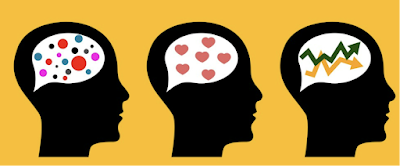Good Codes of Conduct are a useful thing for so many places. Well worded, collaborative, sensible and kind, they can add so much to the need to keep people safe, and keep them clear about what's expected of them.
Unfortunately, some Codes of Conduct are written by teams who have not had diversity training.
One in every seven people is neurodivergent. For example dyspraxia, dyslexia, ADHD, Tourette Syndrome, autism. An equivalent number of people are disabled. There may be an overlap between the two groups. It is a simply huge number of individuals in almost any organisation. And yet, not one that is often considered.
The world needs all kinds of minds, and there's good research showing the benefits of engaging with disabled and neurodivergent people. Often able to 'think outside of the box', often perceiving problems that others had overlooked. Often fantastic at overcoming obstacles, having had a lifetime of having to do just that. And often with considerable strengths of all kinds to offer.
Those creating Codes of Conduct may have only the very best of intentions, but some of their examples in their Codes may lead to disabled or neurodivergent people being accidentally and unfairly accused of bullying, manipulative, or inappropriate behaviour. Others may misinterpret neurodivergent body language, face expressions, eye contact, voice tone, or communication style. Instead of reflecting on the potential for misunderstanding, some misinformed groups may engage in a campaign of 'information collection' about the person in question, all of which becomes alleged evidence against the person. Communications are analysed and summarised, a damning case presented - but without the key context they needed - the realisation that the person is communicating in ways that respect their own neurology, and their own cultures.
How easy has it been for people to disclose that they are disabled, or neurodivergent? How easy is it for them to engage with any inquiry or disciplinary process, in a way that will be fair for them? How many injustices have inadvertently been carried out?
I'd like to look at some examples where there can be pitfalls. Again, stressing that people may have the very best of intentions about all of this.
"Repeatedly emailing people with endless information."
Is it bullying and harassing behaviour? Or is it a cultural expectation, as is common within autistic cultures if someone is concerned that a point hasn't been understood as yet? Often a simple one to solve, with a query about why it's happening - and a clear guide as to how much is too much.
"Being drunk at a meeting". Is that inappropriate conduct? How are we finding out whether they are indeed drunk? There may be definite pieces of evidence, of course - but what if the person has speech apraxia, or other neurological conditions such as a past Stroke that may mean that sometimes - or usually - they may slur their words? For example, when tired or overwhelmed. Often a simple one to solve, with the right gentle enquiries.
"Constantly interrupting others". Is that inappropriate conduct? Or is it neurodivergence? For example autistic people use a different signalling system to determine when it is their turn to speak, so there may be genuine misunderstandings and mistimings because of this difference. Often a simple one to solve, if people collaborate to find a good 'Whose turn is it to speak' system for meetings. A raised hand, a signal of some other kind that work, a good Chair who manages the process well.
"Insulting behaviour". Is that inappropriate conduct? Or might it be someone with Tourette Syndrome, where occasional tics may - for some - result in some rather lively language or gestures.
"Failing to engage". Is that an act of manipulation, or is it driven by neurodivergent bewilderment about process, inaccessible systems, utter exhaustion, etc?
"A lack of positive interactions". Is that inappropriate conduct? Or is it a determination to seek social justice and a focus on facts, common in some neurodivergent individuals - and which is perhaps combined with face expressions that do not match the smiling, cheerful disposition often sought by groups.
"Aggressive interactions". Is that voice tone knowingly aggressive? It is common for neurodivergent individuals to sound different to 'typical' voices, and to sound cross, dismissive, patronising, 'overly posh', sarcastic etc when there was no such intent.
Such matters often require us to consider not just disability and neurodivergence, but also matters of gender & ethnicity, for example. How many women were accused of being 'shrill' and 'hysterical' if they raise concerns? How many Black individuals have a different cultural way of communicating, potentially misunderstood by white groups?
Good training is vital.
Good collaboration is vital.
Reflection on what might lie behind particular situation is paramount, rather than leaping to conclusions.
Check your own Codes of Conduct, and make sure that disability and neurodivergence are always included, and always taken into account.
Thank you for reading.
